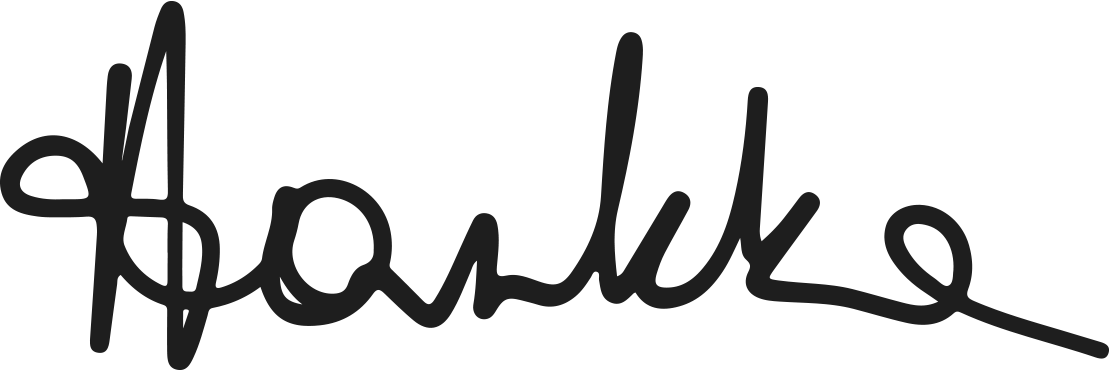We’re creatures of chaos. That’s the beauty of life. Creativity and everything which can eventually become grand is born in a mess. Just like planets are born of swirling pieces of dust crashing against each other, and being formed over compound amount of time and energy.
Creation of anything valuable works pretty similar – all takes time and energy.
When you are having this spark of an idea, write it down immediately. I get inspiration from anywhere. When I speak with someone or see something around me that intrigues or inspires me, I make a note of this. The biggest lie we tell ourselves is “I don’t need to write this down because I will remember it.”
Don’t wait for the perfect moment or conditions to start. Don’t wait for the magical “flow”. It doesn’t “happen” to you. You create it within you by dedication and focus. Cut yourself off too many stimuli pulling you in many directions and feeding your instant gratification. Turn off the Internet if you have to. Open a notepad or use a physical one and just start writing / sketching. I use Mac’s Notes as it’s always there in the background, a click away. I get most done in the air (as I’m writing this, I’m on my way to Edinburg – my first time! :)) because nobody can disturb me here.
Another one of the biggest mistakes I see (and fell for many times myself) is to try to think that you need other external things than you have right now, to make it right; a better website, a better microphone, a more professional photo, a better edited video, a more fancy copy, a more polished software UI. Wrong. The more layers of complexity you add from the start, the bigger the chances of you failing or even, never starting. Create with what you have, and build up from there.
I get it.
With all these success stories you are surrounded with, you don’t want to be perceived as an amateur. You want to come in with something different, memorable. And you will. If you keep showing up, persistently. Share what you’re passionate about. You’ll already have an advantage over majority of people who will never dare to show what they’re about.
So how do you create?
1. “Get” an idea
You don’t really get ideas, so much as let them come to you. People shut down a lot of their own ideas because they seem dumb or boring, but really, with the right execution, any idea can be done well. And if you’re doing something you haven’t done before, you should suck at it. It should feel a little bit embarrassing. That’s how it should be. Have the courage to let those ideas in and just run with them.
2. Draft and concept work
This is really important. Without exception, it is always a good idea to spend time developing an idea, no concept immediately springs into being fully formed and flawless. They need a bit of time and effort to develop and mature a bit in your head. Before any startup becomes ‘an overnight success’, there has been dozens of pivots and failed attempts. So whatever you create, try many variations, don’t get too attached to the original concept, let it grow a little and seek feedback. This is the step that involves the most actual effort. Contrary to a common belief, it’s extremely hard to make something useful – simple.
3. Final version
Another big lie. Nothing is really ever finished. You decide where that line is. Yet, ship it before you feel it’s ready. It should have a minimum value, but you decide what it is. If you need some encouragement, check any successful business man/woman, YouTuber, influencer you admire and watch/read their first published archived work. Most likely it sucked. Commitment, persistence, experimenting and listening to feedback were what got all those people to where they are now. Along your journey, you will polish your work and pivot many times anyway. If you always try the same thing, you’ll arrive at the same answer so experiment.
4. Publish
It’s extremely important to get it out there, share it with the world. Because the feeling of being seen will help you hold yourself accountable. Share what you know (believe me, there are topics you discard as ‘obvious’, yet others will find your knowledge valuable). By teaching others, you learn much more yourself. You connect with likeminded people. You naturally want to become better and the more you give, the more opportunities you get.
5. Move on to the next project, don’t look back.
While one could think quality always overrules quantity, in real life you should aim for the latter (while shipping stuff to the best of your abilities).
“In every field, even the most eminent creators typically produce a large quantity of work that’s technically sound but considered unremarkable by experts and audiences. When the London Philharmonic Orchestra chose the 50 greatest pieces of classical music, the list included six pieces by Mozart, five by Beethoven, and three by Bach. To generate a handful of masterworks, Mozart composed more than 600 pieces before his death at thirty-five, Beethoven produced 650 in his lifetime, and Bach wrote over a thousand. In a study of over 15,000 classical music compositions, the more pieces a composer produced in a given five-year window, the greater the spike in the odds of a hit.
Picasso’s oeuvre includes more than 1,800 paintings, 1,200 sculptures, 2,800 ceramics, and 12,000 drawings, not to mention prints, rugs, and tapestries—only a fraction of which have garnered acclaim. In poetry, when we recite Maya Angelou’s classic poem “Still I Rise,” we tend to forget that she wrote 165 others; we remember her moving memoir I Know Why the Caged Bird Sings and pay less attention to her other 6 autobiographies. In science, Einstein wrote papers on general and special relativity that transformed physics, but many publications had minimal impact. If you want to be original, “the most important possible thing you could do,” says Ira Glass, the producer of This American Life and the podcast Serial, “is do a lot of work. Do a huge volume of work.”
Excerpt From: Originals by A. Grant.
Building a successful startup is also a result of many mini projects; trying different sales approaches, A/B marketing testing, finding your ideal customer, closing a deal, establishing pricing and what market is willing to pay, building a brand etc.
It’s too easy to get stuck on one individual piece trying to polish it to perfection. It’s almost always detrimental, to get fixated rather than just starting the next one. Often, the first failed attempt may give you a spark, be the foundations for something of a much bigger potential. Shoot for quantity and quality will follow.
As I’m writing this, I have 56 saved posts drafts about the various subjects. I have there loose thoughts, paste some quotes or other relevant to the main theme bits. Each time I come back to any of these drafts with hope to polish and publish one, I wonder what the hell was I thinking when writing that down. It’s an utter chaos, often with some contradicting thoughts within a proximity of a paragraph. But that’s a normal process of creation. It’s not supposed to make sense at first. Even the most beautiful songs or paintings looked ugly in the beginning. Unfinished is chaos. In chaos, the beauty is born. I learned to be comfortable with that.
I come back again and again to whatever I undertake, until I feel that I start enjoying the process or that it’s not for me at all and move on. It’s important to try things out for long enough to know if you’ll like them or not. It takes time and more than a couple of attempts to find out if you’ll like something. If it can become your passion. Sometimes it just clicks and you instantly know that you’ll love it. I had it with snowboard, tennis or languages. But I needed to grow into liking public speaking, painting or playing guitar.
I already wrote about how commonly proclaimed “Find your passion” advice is hurtful. Hint – you don’t find it, you choose and create it. Half baked but published is better than put in the drawer. Feedback will help you grow, tune your ideas or find others who will help you grow what you intend to do.
So go on. Start a project. Commit to something.
Resources:
- Book: Originals by Adam Grant
- Book: Deep Work by
- Talk: The 6 Year Overnight Success
- Talk: 1% Better Each Day by James Clean





